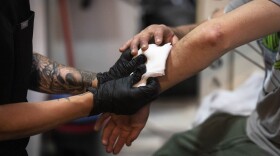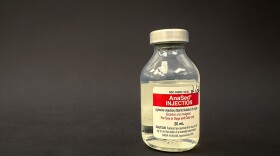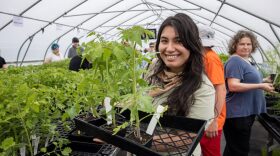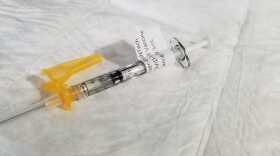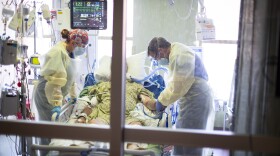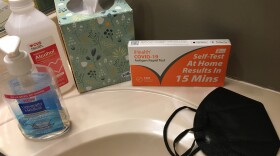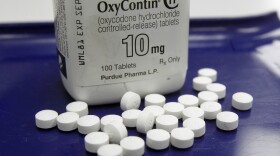-
Cheyanne Mumphrey/AP PhotoFederal health officials say 31 babies in 15 states have been sickened in a growing outbreak of infantile botulism tied to ByHeart infant formula. ByHeart recalled all of its products sold throughout the U.S. No deaths have been reported. Health officials say parents and caregivers who have the formula in their homes should stop using it immediately and dispose of the product. Botulism is a rare but serious disease that can cause paralysis and death. Symptoms can take weeks to develop. The most recent case was reported Nov. 11.
-
Phil Gianficaro/LehighValleyNews.comIn just two weeks time, 75 businesses, organizations and individuals contributed $677,000 to address food insecurity throughout the Greater Lehigh Valley.
Lehigh Valley Heart and Vascular Institute now offers treatment for atrial fibrillation (AFib) with a new system that uses pulsed electrical fields to target problematic heart muscle cells instead of extreme heat or cold.
Health & Wellness News
-
The funding, through the Livable Landscape program, was unanimously approved at the county council’s June 18 meeting.
-
Legislators worked to establish penalties for xylazine use and trafficking in an attempt to lessen its presence in Pennsylvania's illicit drug supply. Some say doing so made way for a new, unclassified veterinary tranquilizer to take its place — medetomidine.
-
Nearly a year after the Biden administration designated xylazine as an "emerging threat" to the United States, Gov. Josh Shapiro classified it as a schedule III drug, making unauthorized possession a crime in Pennsylvania. Experts say the move has partly served to clear the way for new illicit substances to enter the drug market.
-
Proposed federal budget cuts would impact programs such as the free summer meal program for children in the Allentown School District.
-
The $2.75 million payment to the federal government resolves allegations that a pharmacy technician stole controlled substances on about 40 occasions and the health network failed to institute proper controls.
-
Despite not being approved for human consumption, veterinary tranquilizers are infiltrating the illicit drug supply in Pennsylvania. Harm reduction specialists and health care professionals say these overdoses can't be approached solely with naloxone, the opioid overdose reversal drug.
-
A generous donation from a Lehigh Valley native and others funds free swim lessons for children and adults in the River Crossing YMCA's Safety Around Water, or SAW, swim education program.
-
The bill would limit the manufacture, sale, distribution and use of firefighting foam containing PFAS, also known as forever chemicals, beginning in 2026.
-
Xylazine, an animal-grade tranquilizer that's not approved for human use, has taken Pennsylvania's illicit drug supply by storm. Known on the streets as "tranq," it accounted for almost 1 in 4 overdose deaths in Pennsylvania by 2023. Last year in Lehigh County, it was a contributing cause of death in 20 of the 112 deadly overdoses, or 17.9 percent of cases.
-
The funding comes from the commonwealth’s Resilient Food Systems Infrastructure program, a cooperative agreement with the U.S. Department of Agriculture.
-
Known as "tranq" on the streets, an animal tranquilizer named xylazine infiltrated drug supplies throughout Pennsylvania since 2019. Its presence in the Lehigh Valley has grown, with deadly consequences.
-
With the Lehigh Valley under an extreme heat warning through Wednesday, area doctors are urging residents to keep hydrated and stay cool.
-
NHCLV has made more virtual visits available during the latest COVID surge.
-
It's best to plan ahead make an appointment to get a vaccine booster.
-
The district is trying to keep its schools open in spite of the surging number of COVID cases.
-
Customers are finding they can save money by comparing and ordering pharmacy items online.
-
The state plans to set up overflow sites and send medical staff to overwhelmed areas.
-
The bureau gives about 100 shots a day and is also willing to travel.
-
Plans are to resume in-person classes on Jan. 31.
-
Health care professionals want to make sure the COVID patients who most need the medications will get them.
-
Precautions remain the same: wash your hands, wear a mask, get vaccinated, avoid crowds.
-
The situation is worsened by staffing issues caused by hospital personnel getting sick.
-
Improvements have been made, but the rate still lags behind other developed nations.
-
More than 5,000 Pennsylvanians died from overdoses last year.






